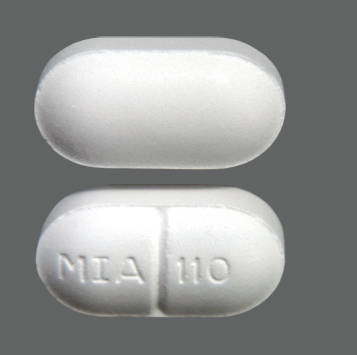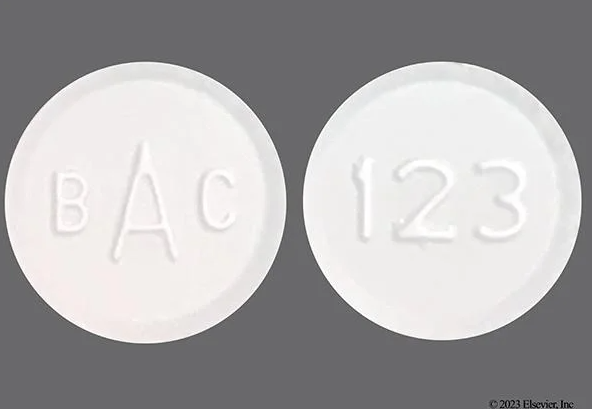Fioricet with Codeine is supplied in capsule form for oral administration.
Each capsule contains:
Butalbital, USP ………………. 50 mg
Acetaminophen, USP ……………….300 mg
Caffeine, USP ……………….40 mg
Codeine Phosphate, USP ……………….30 mg
Tolerance and addiction may also occur with butalbital. Tolerance means that a person needs more of the medication to achieve headache relief. Addiction to butalbital is characterized by persistent behaviors, like compulsions, to take a butalbital-containing medication.
These behaviors impair their life in some way, negatively impacting relationships and/or everyday functioning.
Is Fioricet Addictive?
Although it’s only a prescription headache medication, Fioricet has the potential to cause addiction.
If a person follows their prescription guidelines and uses the medication correctly, the risks of addiction are low. However, if someone takes too much Fioricet, they may develop tolerance to its effects.
A person with tolerance to a certain dose of Fioricet will require higher doses of the medication to alleviate their headaches.

Fioricet is a useful drug doctors prescribe for treating certain types of headaches.
It’s a combination of caffeine, acetaminophen, and butalbital all working together.
The main addictive component of the drug is the butalbital, which can form tolerance and dependency over the course of several weeks or months. With frequent use, the drug can begin to cause physical dependence and addiction. Without taking the drug, it can cause uncomfortable withdrawal symptoms — ironically leading to severe headaches.
Fioricet overdose is serious, but with rapid medical attention can be treated effectively. Lasting side effects of a Fioricet overdose can result from the acetaminophen content, which damages the liver and kidneys.
If you or someone you love is addicted to Fioricet, it’s recommended that you seek immediate medical support to begin the healing process sooner than later.
What Makes Fioricet Addictive?
The addiction begins through habit formation. If taking the drug regularly for treating chronic headaches, it becomes routine to take the drug at the first sign of a headache.
With regular use, the body begins to become physically dependent. As the drug exerts its effects on the body day after day, our body begins to resist the drug by blocking the specific receptors Fioricet exerts its effects upon.
This causes the user to require larger doses of the drug to receive the desired effects.
Additionally, once this change begins, the motivations for taking the drug begins to change.
Instead of taking it to treat a headache, we take it in order to prevent withdrawal symptoms. As soon as we stop the medication, withdrawal symptoms cause severe headaches, forcing us to take more of the drug just to prevent this from happening.
Signs of Fioricet Addiction
-
-
- Worsening headaches with Fioricet use
- Lack of response from Fioricet
- Cravings for Fioricet
- Sleep problems
- Doctor shopping — trying to find new sources of the drug
It’s a red flag for Fioricet addiction when someone says that they can’t function without the drug. This should be ringing alarms in anybody who hears this’ head to seek help before the problem becomes worse than it already is.
When a person with tolerance starts to take more Fioricet, possibly by obtaining more prescriptions, they may eventually become dependent on it. In other words, they may feel unable to get through the day without taking Fioricet, and if they stop, they will experience symptoms of withdrawal. These symptoms arise because their body has grown accustomed to Fioricet in high doses.
If a Fioricet-dependent person attempts to weather withdrawal alone, it’s likely they will take Fioricet again just to relieve the symptoms. This is a hallmark characteristic of addiction. Anyone who compulsively abuses Fioricet to avoid withdrawal likely has an addiction to Fioricet. Additionally, people with an addiction to Fioricet will experience cravings for the medication which further compel them to keeping using it.
Moreover, the ingredient butalbital is an addictive substance in its own right. Butalbital can cause someone to “get high” because it’s a central nervous system depressant. Since butalbital is part of Fioricet, it is possible for someone to abuse Fioricet as a recreational drug. At high doses, Fioricet can intoxicate a person in a manner similar to alcohol. People who abuse Fioricet for this purpose have as much of a risk of developing an addiction as they would have if they repeatedly use an illegal drug.
Preventing Fioricet addiction involves several proactive measures aimed at minimizing the risk of dependency and promoting responsible use. Here are some strategies to help prevent Fioricet addiction:
By taking proactive steps to use Fioricet responsibly, monitor your use, and seek help if needed, you can reduce the risk of developing addiction and promote safer and more effective management of your symptoms.

